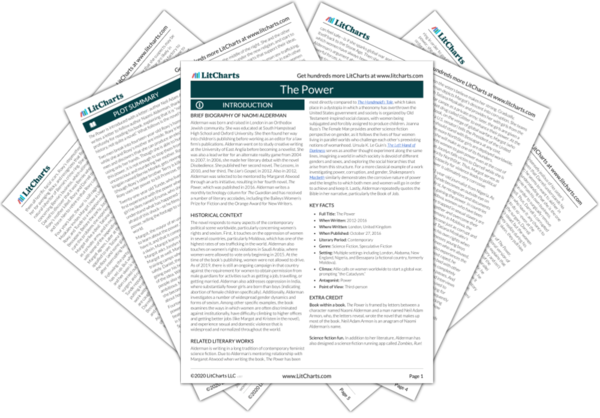Alderman is writing in a long tradition of contemporary feminist science fiction. Due to Alderman’s mentoring relationship with Margaret Atwood when writing the book,
The Power has been most directly compared to
The Handmaid’s Tale, which takes place in a dystopia in which a theonomy has overthrown the United States government and society is organized by Old Testament-inspired social classes, with women being subjugated and forcibly assigned to produce children. Joanna Russ’s
The Female Man provides another science fiction perspective on gender, as it follows the lives of four women living in parallel worlds who challenge each other’s preexisting notions of womanhood. Ursula K. Le Guin’s
The Left Hand of Darkness serves as another thought experiment along the same lines, imagining a world in which society is devoid of different genders and sexes, and exploring the social hierarchies that arise from this structure. For a more classical example of a work investigating power, corruption, and gender, Shakespeare’s
Macbeth similarly demonstrates the corrosive nature of power and the lengths to which both men and women will go in order to achieve and keep it. Lastly, Alderman repeatedly quotes the Bible in her narrative, particularly the Book of Job.
